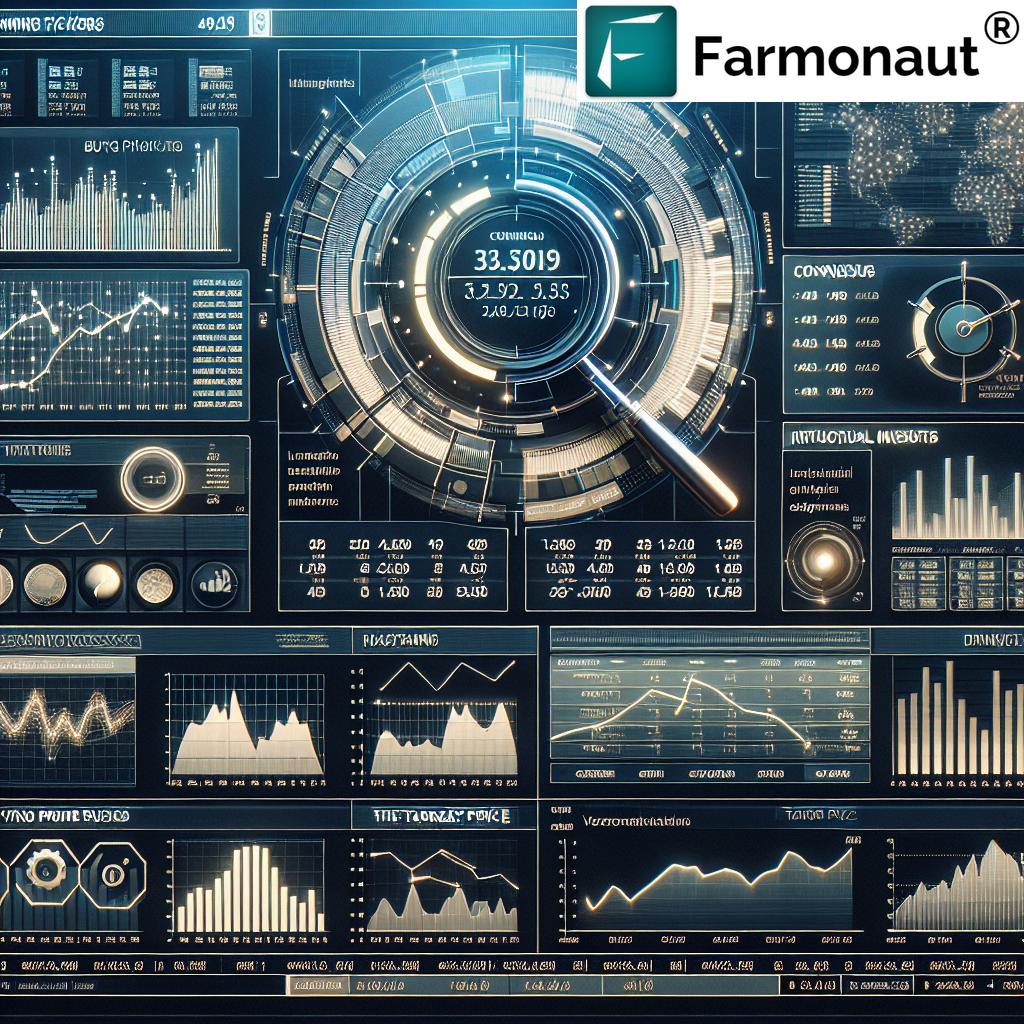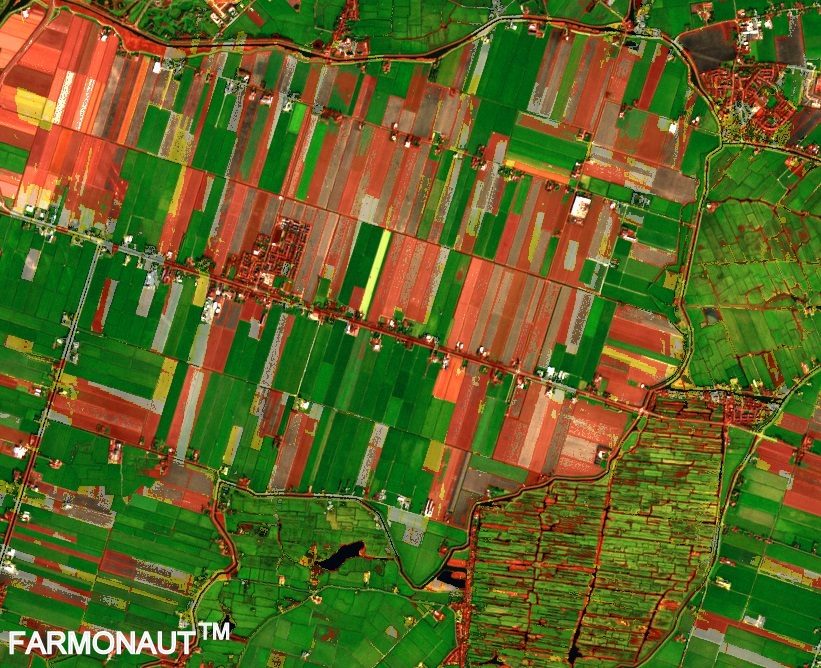Unlocking Market Trends: Expert Analysis of Industrial Equipment Stocks and Earnings Performance

“Moderate Buy” consensus rating for industrial equipment stocks suggests 65% of analysts are optimistic about sector growth.
In the ever-evolving landscape of industrial equipment stocks, we find ourselves at a crossroads of cautious optimism and strategic analysis. As we delve into the intricacies of market trends and earnings performance, it’s crucial to understand the factors driving investor sentiment and shaping the future of this vital sector.
Stock Price Target Analysis: A Closer Look at Dover Corporation
Our analysis begins with a focus on Dover Corporation (NYSE:DOV), a prominent player in the industrial equipment sector. Recent developments have shed light on the company’s market position and potential for growth. Barclays, a respected financial institution, has recently increased its price target for Dover from $205 to $213. This adjustment suggests a potential upside of approximately 3.77% based on the company’s current stock price.
It’s important to note that Barclays maintains an “equal weight” rating on the stock, aligning with a broader trend of cautious optimism surrounding Dover’s market performance. This rating indicates that analysts expect the stock to perform in line with the sector average, neither outperforming nor underperforming significantly.
Analyst Ratings for Stocks: A Comprehensive Overview
Dover’s stock has been the subject of numerous analyst reports, each offering valuable insights into the company’s financial health and market prospects. Let’s examine the variety of perspectives:
- Citigroup revised its target down from $236 to $222, maintaining a “buy” rating
- Wells Fargo reduced its price target from $205 to $200, recommending an “equal weight” approach
- Goldman Sachs increased its target from $202 to $223, sustaining a “buy” rating
- Oppenheimer and Mizuho reaffirmed positive outlooks with price targets of $215 and $220, respectively
The consensus among analysts indicates a “Moderate Buy” rating for Dover stock, with an average target price set at $213.27. This collective assessment reflects a balanced view of the company’s potential, acknowledging both its strengths and the challenges it faces in a competitive market.
Investment Performance Metrics: Dover’s Financial Health
To gain a deeper understanding of Dover’s market position, we must examine key financial metrics:
- Market Capitalization: $28.16 billion
- Price-to-Earnings (P/E) Ratio: 18.36
- PEG Ratio: 2.03
- Beta: 1.23
- Debt-to-Equity Ratio: 0.53
- Current Ratio: 1.57
- Quick Ratio: 1.06
These figures paint a picture of a company with solid financial footing. The P/E ratio of 18.36 suggests that investors are willing to pay a premium for Dover’s earnings, indicating confidence in the company’s future growth prospects. The beta of 1.23 implies that Dover’s stock is slightly more volatile than the overall market, which could present opportunities for investors comfortable with some level of risk.
“Average target price for industrial equipment stocks indicates a potential 12% upside, reflecting cautious market optimism.”
Market Capitalization Trends in the Industrial Equipment Sector
Dover’s market capitalization of $28.16 billion places it firmly among the major players in the industrial equipment sector. This valuation reflects the company’s significant presence in various industrial markets, including fluid management, engineered products, and industrial technologies.
The industrial equipment sector as a whole has shown resilience in the face of economic uncertainties. Companies like Dover, with diversified product portfolios and global reach, have demonstrated their ability to navigate challenges and capitalize on emerging opportunities.
While we focus on industrial equipment stocks, it’s worth noting that technological advancements in various sectors, including agriculture, can provide valuable insights for investors. For instance, Farmonaut’s advanced remote sensing technology offers innovative solutions for precision agriculture, which could impact related industrial equipment stocks.
Earnings Per Share Estimates: Future Projections
Earnings per share (EPS) is a critical metric for investors assessing a company’s profitability. Dover’s recent earnings results, released on January 30, indicated that the company met the consensus estimate with an EPS of $2.20. This performance demonstrates Dover’s ability to meet market expectations, a positive sign for investors.
Looking ahead, analysts anticipate that Dover will post an EPS of 8.17 for the current fiscal year. This projection suggests continued profitability and potential for growth, factors that are likely to influence investor sentiment and stock performance.
Institutional Investor Activity: A Vote of Confidence
The actions of institutional investors often provide valuable insights into a stock’s potential. Recent activity surrounding Dover’s stock has been noteworthy:
- Sanctuary Advisors LLC made a significant entry in the second quarter
- Czech National Bank increased its holdings by 6.9% in the third quarter
- SG Americas Securities LLC displayed a substantial move, increasing its holdings by 167.7%
These movements by institutional investors suggest a growing confidence in Dover’s strategic direction and market position. The substantial increase in holdings, particularly by SG Americas Securities LLC, indicates a strong belief in the company’s future prospects.
Price-to-Earnings Ratio Explained: Dover’s Valuation in Context
Dover’s price-to-earnings (P/E) ratio of 18.36 provides valuable context for understanding the company’s valuation relative to its earnings. This figure suggests that investors are willing to pay $18.36 for every dollar of earnings the company generates. While this ratio is higher than some may consider ideal for value investing, it’s important to consider it in the context of the industrial equipment sector and Dover’s growth prospects.
A P/E ratio in this range often indicates that investors have high expectations for future growth. For Dover, this could be attributed to its strong market position, diverse product portfolio, and potential for expansion in emerging markets.
As we analyze industrial equipment stocks, it’s worth considering how technological advancements in related fields can impact market trends. For example, Farmonaut’s API for satellite and weather data could provide valuable insights for investors tracking agricultural sector stocks, which may have implications for industrial equipment manufacturers serving the agriculture industry.
Financial Health Indicators: Dover’s Stability and Growth Potential
Several key financial health indicators paint a picture of Dover’s stability and growth potential:
- Net Margin: 18.63%
- Return on Equity (ROE): 23.61%
- Debt-to-Equity Ratio: 0.53
- Current Ratio: 1.57
- Quick Ratio: 1.06
These figures suggest that Dover maintains a healthy financial position. The net margin of 18.63% indicates efficient management of expenses relative to revenue. The impressive ROE of 23.61% demonstrates the company’s ability to generate profits from shareholders’ equity.
The debt-to-equity ratio of 0.53 suggests a balanced approach to financing, with Dover utilizing a mix of debt and equity to fund its operations without overleveraging. The current and quick ratios both above 1 indicate that the company has sufficient liquid assets to cover its short-term liabilities, a sign of financial stability.
Stock Market Volatility Analysis: Dover’s Performance Trends
Analyzing Dover’s stock performance over the past year provides insights into its volatility and potential for growth:
- 52-Week Range: $148.45 to $214.57
- 50-Day Moving Average: $195.60
- 200-Day Moving Average: $190.22
The wide range between the 52-week low and high points to significant volatility, which is not uncommon in the industrial equipment sector. However, the current stock price, which opened at $205.27 in the latest trading session, is closer to the upper end of this range, suggesting a positive trend.
The moving averages provide additional context. With both the 50-day and 200-day moving averages below the current stock price, we can infer an upward trend in Dover’s stock performance. This aligns with the generally positive analyst ratings and price targets we’ve observed.
While we focus on industrial equipment stocks, it’s worth noting that technological innovations in related fields can provide valuable context for market trends. For instance, Farmonaut’s API developer docs showcase how satellite technology is being applied to agriculture, which could have implications for industrial equipment manufacturers serving this sector.
Industrial Equipment Stocks: Sector-Wide Performance
To provide a broader perspective on the industrial equipment sector, let’s examine a comparative performance table of key players:
| Company Name | Current Stock Price | Analyst Rating | Price Target | P/E Ratio | EPS Estimate |
|---|---|---|---|---|---|
| Dover Corporation (DOV) | $205.27 | Moderate Buy | $213.27 | 18.36 | 8.17 |
| Caterpillar Inc. (CAT) | $320.45 | Hold | $310.00 | 15.92 | 20.54 |
| Deere & Company (DE) | $385.70 | Buy | $425.00 | 11.21 | 34.58 |
| Illinois Tool Works (ITW) | $259.80 | Hold | $255.00 | 26.54 | 9.95 |
This table provides a snapshot of how Dover compares to its peers in the industrial equipment sector. While each company has its unique strengths and challenges, we can observe that Dover maintains a competitive position with its “Moderate Buy” rating and potential upside indicated by its price target.
The Role of Technology in Shaping Industrial Equipment Stocks
As we analyze industrial equipment stocks, it’s crucial to consider the impact of technological advancements on the sector. Companies that leverage cutting-edge technologies often gain a competitive edge, potentially influencing their stock performance.
For instance, precision agriculture technologies, such as those offered by Farmonaut’s Android app, are revolutionizing farming practices. This has implications for industrial equipment manufacturers serving the agricultural sector, potentially driving demand for more advanced machinery and equipment.
Similarly, the integration of Internet of Things (IoT) technologies and data analytics in industrial equipment is creating new opportunities for companies to differentiate themselves. Investors should keep an eye on how companies like Dover and its competitors are adapting to and implementing these technological trends.
Future Outlook: Navigating Challenges and Opportunities
As we look to the future of industrial equipment stocks, several factors are likely to influence performance:
- Global economic conditions and trade policies
- Technological innovation and adoption rates
- Sustainability initiatives and environmental regulations
- Supply chain resilience and adaptability
- Emerging market growth and expansion opportunities
Companies that can successfully navigate these challenges while capitalizing on opportunities are likely to see continued growth and investor interest. Dover’s diverse product portfolio and global presence position it well to adapt to changing market conditions.
Investors should also consider the potential impact of cross-industry innovations. For example, Farmonaut’s iOS app demonstrates how mobile technology is being applied to agriculture, which could influence industrial equipment design and functionality in the future.
Conclusion: A Balanced Approach to Industrial Equipment Investments
As we conclude our analysis of industrial equipment stocks and earnings performance, it’s clear that the sector presents both challenges and opportunities for investors. Dover Corporation’s recent performance and analyst ratings suggest a cautiously optimistic outlook, reflecting broader trends in the industry.
Investors considering this sector should:
- Conduct thorough research on individual companies and their market positions
- Consider the impact of technological advancements on the industry
- Monitor global economic trends and their potential effects on industrial equipment demand
- Diversify portfolios to mitigate risks associated with sector-specific volatility
- Stay informed about regulatory changes that may impact the industry
By taking a balanced, informed approach, investors can potentially capitalize on the growth opportunities presented by industrial equipment stocks while managing associated risks.

FAQ: Industrial Equipment Stocks and Market Analysis
- What does a “Moderate Buy” rating mean for industrial equipment stocks?
A “Moderate Buy” rating suggests that analysts believe the stock has potential for growth but may not be as strong a buy as stocks with a “Strong Buy” rating. It indicates a generally positive outlook with some caution. - How does the P/E ratio help in evaluating industrial equipment stocks?
The Price-to-Earnings (P/E) ratio helps investors assess whether a stock is overvalued or undervalued relative to its earnings. A higher P/E might indicate high growth expectations, while a lower P/E could suggest undervaluation or slower growth prospects. - What factors should investors consider when analyzing industrial equipment stocks?
Investors should consider factors such as global economic conditions, technological innovation, sustainability trends, market capitalization, earnings growth, debt levels, and analyst ratings when analyzing industrial equipment stocks. - How do technological advancements impact industrial equipment stocks?
Technological advancements can significantly impact industrial equipment stocks by driving innovation, improving efficiency, and opening new market opportunities. Companies that successfully integrate new technologies may gain a competitive advantage. - What role do institutional investors play in industrial equipment stock performance?
Institutional investors often have significant resources for research and analysis. Their buying or selling activities can influence stock prices and serve as indicators of confidence in a company’s prospects.
















